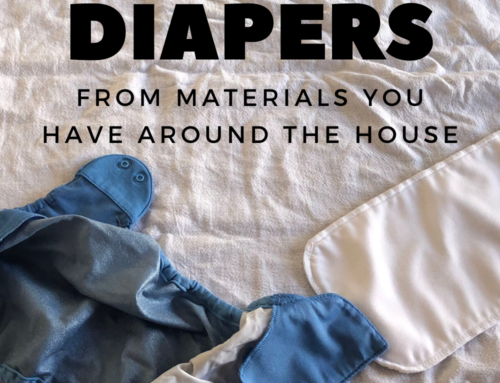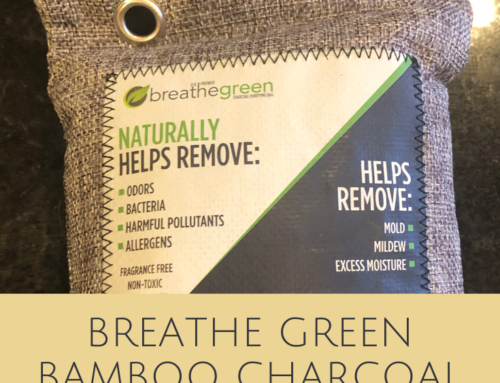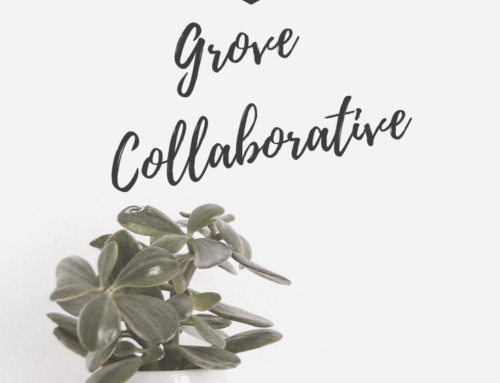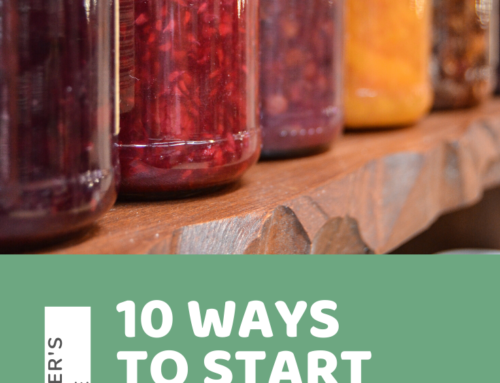This is part 2 of my Reducing Plastic and Waste series (see part one here). Just to quickly recap, one of the best things we can do individually to help our world be a better place is to reexamine our consumerist habits. It may not seem like it matters, but our individual habits are one of the few things we have 100{9994046f29331ee04cc0b5e07eb28364315ea03ccc2f01b5a43e8b85b372d1e9} control over. If we aren’t even willing to change our own lives to create and inspire change, how can we expect anyone else (whether it be the government, corporations, etc) to do it? The more we demand a society that fuels consumerism, the bigger the (literal and figurative) mess we are making of our planet. Now, I don’t believe all consumerism is bad–it drives our economy and has made the world a better place in many ways. But there are some very bad things about it that are wreaking havoc on our planet that we must take responsibility for.
The two steps I described in part one of this post series were to reduce our use of single-use items, and to reconsider our shopping habits. I encourage you to check out part one for more details on those steps.
In this post, I will outline three more actionable steps we can take as individuals to create and inspire change in reducing plastic waste in the environment.
Adopt a Minimalist Approach

You do not need to become a tiny-house living, 5-item owning person to do this. There are some very extreme versions of minimalism out there, and all the power to them! But the average Joe-Schmo can do this without taking a vow of poverty.
There are a number of different minimalist philosophies out there, and I don’t necessarily endorse one particular model over another. But you can start with the Netflix documentary I suggested in part one of this post series (simply called Minimalism: A Documentary about the Important Things). You can also try the book The Life-Changing Magic of Tidying Up by Marie Kondo. Or, you can simply type “minimalism” into Google and search a wide variety of blogs on the topic. All we really need to proceed with this step are the basic principles.
The reason I suggest this as an actionable step to reducing plastic waste in our environment is because we need to get to the root of the problem: our consumer greed. Take a minute to process the fact that America is only 5{9994046f29331ee04cc0b5e07eb28364315ea03ccc2f01b5a43e8b85b372d1e9} of the global population, but generates 40{9994046f29331ee04cc0b5e07eb28364315ea03ccc2f01b5a43e8b85b372d1e9} of the world’s waste. (One-third of that waste is product packaging, by the way!) We can do something about this!
The biggest way to reduce our waste is to buy less stuff to begin with. This is where minimalism principles can be really helpful.
Basic Minimalism Principles
- Do not buy or keep anything that is not a true need, or that doesn’t make you happy. You are in charge of this step, there are no rules. I’m not telling you that you can’t buy something you really want just because it’s not a need. But I am challenging you to think about if the item is really going to bring you joy, or if it is just an impulsive idea that sounded neat at the time, but will end up in the trash or cluttering your house later. Be intentional about your purchases from now on.
- Find contentment in your life. Forget trying to keep up with the Joneses. The Joneses probably have a lot of credit card debt, anyway. 😉 And even if they don’t, buying more and more and chasing the next big purchase (whether it be a house, car, new clothes, whatever it is that you keep looking for) only makes us more stressed, more anxious, and more depressed. Plus it just fuels the worst things about consumerism.
- Simplify your life. Removing clutter is a big part of minimalism, but this goes beyond physical items. Remove mental clutter, or the clutter of a busy schedule as much as you can. You will be so much happier.
Donate Items You No Longer Need

It’s good to do a little research on the store before you donate the items if you can. Make sure they responsibly recycle or dispose of any item they choose not to sell. Some stores just throw items in the garbage if they don’t think they can sell them. You can do your part to make sure you are donating things to a store that takes the proper steps to dispose of things they choose not to keep.
Depending on what the items are, you can call around to various homeless or women’s shelters to see if they have a need for anything you are getting rid of. There are also charities that take household items to help out lower-income families. Do a search for charities in your area and make some calls. It is an extra step than just throwing them in the garbage, but you will be so glad you took the time to do it.
Buy Second-Hand

Let’s talk specifically about clothes for a minute. You may have heard about “fast fashion”–fast fashion is cheap clothes created to appease the newest trends. There are a lot of ethical concerns with this, first of all with the environmental impact of constant mass production of clothing that is essentially disposable, and also the fact that many of the retailers that conform to fast fashion use child labor.
Buying second-hand takes a sale away from these companies. Even if the item you buy second-hand is from one of these companies, it’s an item that they have already received money for and is already circulating in our society, so you are preventing them from receiving new purchases. Doing this is an example of voting with your dollar. It shows them that we care about people and our planet.
Perfection Isn’t Possible

Maybe you just want to adopt one or two new habits instead of overhauling your life. That is wonderful, too! Once you have those new habits down, maybe you’ll be up for more.
You don’t have to be an environmentalist or a “Green Peace” person to make responsible consumerist decisions that benefit our planet. It’s just a matter of choosing to live a little differently than maybe you have in the past. We will not get anywhere if we don’t live differently. Just like the quote from the Netflix documentary I shared in part one of this post series said, we can not achieve what we are trying to achieve environmentally without changing our lifestyles.
What Are You Going to Change?
I’d love to hear from you! What is one thing you think you could change that would make a difference, even if it’s a small one? What is your primary motivation for this change?




Haha, I found this line hilarious “You do not need to become a tiny-house living, 5-item owning person to do this”. As so many people think that this is what will reduce their waste.
Nope, not quite! These people may still make the same amount of garbage as others, only they a tinier space to do it.
Contentment in life is very important, as most of us look for outside external factors and that usually involves buying something.
My daughter loves second, according to her it’s vintage she is shopping. Even though it’s from my era…getting called vintage is actually quite funny.
Thanks for these great tips.
That is so true, Jag! Someone in a tiny house can definitely still have unsustainable habits and generate plenty of waste, but just pat themselves on the back for their tiny house. Definitely missing the point!
Hey Holly,
Given the present economy that we are now in, minimalism could end up being more of a financial necessity rather than an environmental option. Your basic principles are good economic and common sense principles too!
Our ancestors were never as wasteful as we are now. So many of us think of ideas such as reworking a plastic bottle into big scoop is something thought of as being recent… yet it is an “old school” idea. Our ancestors used to rework items into so many other needs like gardening tools and even toys whenever possible.
My father showed me how to take a pair of his slacks that he had worn during his time in the Navy that were made of very, high quality wool and make a pair of slacks for myself. That was back in the days when extra money was not easy to come by. WOW, talk about feeling empowered; I gained a VERY unique pair of quality slacks simply by taking apart a garment that was in excellent condition and reworking it into a different style and fit for me.
The day and age of “disposable” was frowned upon by senior back in the ‘60s when it was first becoming “vogue”, and NOW I get it!
Taking tin cans and making them into things like miniature baby buggies, cars, tables and chairs… these have been my fun projects for recycling.
Hi Trish! I LOVE this comment so much, and I couldn’t agree more! Our modern society has gotten carried away with new, shiny, easy, convenient….it’s not sustainable at all!
For those who are trying to “be perfect” buying second hand on Poshmark is a wonderful way to rebuild a wardrobe as well as support your fellow (wo)man who is most likely using the site to clean out their closet. The selection is fantastic, like new and many people selling items there donate what they can not sell.
Your data about the amount of plastic packaging we are responsible for is truly inspiring- and makes me want to visit the health food store to shop in the bulk department! I love that you can simply buy what you need and skip all of the packaging – and then use the glass jars on your counters to store and display the healthy wholesome foods you bought. Living the minimalist lifestyle is truly a lovely way to live – when you can remember to simply do it mindfully!
I have not yet tried Poshmark! I’ll have to check it out next time I need something. Haven’t tried selling on it, either. Maybe I should do that next time and then donate what doesn’t sell! I also have a goal for myself to master the bulk bins. 🙂 And I agree with you about minimalism. What I think most people get turned off by when it comes to that is “rules”–thinking they have to do certain things and not sure that they’re willing to go to that level. But the principles can be applied to anyone’s life, no matter how drastically they want to take it. And you will see benefits no matter how “all in” you go!
Since plastic is becoming the center of attention (because yes, it is really spoiling and contaminating our planet’s oceans or seasides) we must start caring more about it…. yes first things first… the manufacturers get first blow, then second blow comes to the consumers…
On this note I bet all should do our best to look after our planet and mother earth. It is not even a question, it is must.
Yes, I agree Otis…the average person needs to start caring much more than they do!
Hi Holly – I found this article fascinating as it is something that our family has been discussing for a while. It all started with our little one who – through no fault of his own – had become accustomed to purchasing a little toy everytime we went somewhere (add over zealus grandparents and his room resembled Toys R Us). My wife read a differrent article along these lines and once we had a look at his beehaviour, we realised that the tantrums he had when he didnt get something were compounded by the fact that he never played with any of the toys he got bar a few regulars.
So we decided to take the minimalise line with him, we donated all the ‘crap’ to the local church op shop and he is allowed to only purchase a new toy if he gives another one up. It is incredible to watch. We have taken that lead and started implementing this lifestyle into our own lives. Not only are we saving a fortune not buying fad things we don’t need but the house is actually more liveable and enjoyable.
Great article and a highly recommended way of living
Paul
That’s awesome, Paul! I, too, find my home MUCH more enjoyable now. It’s amazing! I’m itching to do another round of decluttering though—it’s been about 10 months and things are creeping back in.
Hi
This is a subject that is close to many people heart today. So firstly thank you for building awareness around this topic.
I would not go as far to say that I am a minimalist but I have slow right down on purchasing things for the sake of it. I am more mindful about what I purchase now. I do try to purchase more glass bottle products than plastic. I also reuse my plastics by making things out of them.
Yes I am a crafter so I will re-purpose a lot of plastic items rather than just throwing them away.
I also donate a lot of items that I now longer need or use anymore to charities. I am always thinking of new ways that things around the home can be re-purposed rather than going out and buying new.
Thank you for this article I will be sharing this to build the awareness that you have started.
Jennifer
That’s awesome, Jennifer! I don’t like using the term “minimalist” for myself, either. I have a hard time with labels, lol!’plus I don’t fit the mold perfectly. But I do try to consistently apply the principles to my life.
Well said.
Thank you so much for not saying ‘get rid of plastic shopping bags’. In some Australian states they have done this by calling them ‘single use’. Now instead of reusing my plastic bags, I have to buy plastic bags. The end result. An inconvenience at the shops and very little reduction in plastic.
Meanwhile, foods such as lettuce mix, coleslaw mix and spinach leaves are packaged and sold in lots. So instead of using one bag to mix fresh items, one buys ready made using 2 or 3 bags as they are all sold as separate items.
In this way your realistic approach to minimization is a big step in the right direction. We all need to consider those little plastic water bottles (even if they are recycled) and those takeaway coffee cups. You can buy reusable cups for coffee, but most people won’t spend a little extra. Likewise, some businesses refuse to fill cups because they are not ‘the correct size’ or some such rubbish.
Pollution control really is all about litter control and litter control is not limited to throwing rubbish out the car window. Litter control includes the amount of packaging that makes it to landfill.
One thing that I always recycled in my back yard was paper. Shred it and place in the compost bin. It breaks down and becomes compost – food for plants.
There is a lot we can do to protect our environment with a minimalist approach.
You’re so right KerryAnn! And I agree with you that we kind of hyper-focused on shopping bags and overlook a lot of other things. Shopping bags certainly contribute, but I don’t know that they would even be the worst contributor!
Reducing plastic is clearly something that we all need to be concerned about.
I live in Thailand and when we go shopping, it is unbelievable the amount of plastic bags they give us for our shopping.
Whilst we do our best to cut back on plastic, it is very challenging when virtually everything comes wrapped in plastic.
I think governments globally should put weight on manufactures of all products to reduce plastic in their packaging. Tax relief could be given to companies that co-operate.
I recently went to a anti-plastic awareness run in and at the end of the run, everyone was given water… in plastic bottles…
Which seemed to be out of context!
When producers of products, reduce plastic it will force us to comply.
We will not really affect the issue unless we cut the supply at source.
It is great you are making the public aware.
Keep up the great work
Tim
Hi Tim! In general, I agree with you. Corporations can certainly do their part to help, but if the consumer keeps demanding a convenient lifestyle, corporations are really going to want to meet that demand and make money off of us. I think expecting them to take the moral high ground while we continue to be wasteful is unrealistic. If I’ve learned anything by watching the news lately, it’s that there are so many companies that care less about doing the right thing the richer they get. 🙁
We can ask the government to force it, but whether or not the government does something like that depends on who we vote in. And if we don’t begin to change our attitudes, we will not be voting in people who care about this issue. So I do think it really does begin with each person having a willingness to live differently.